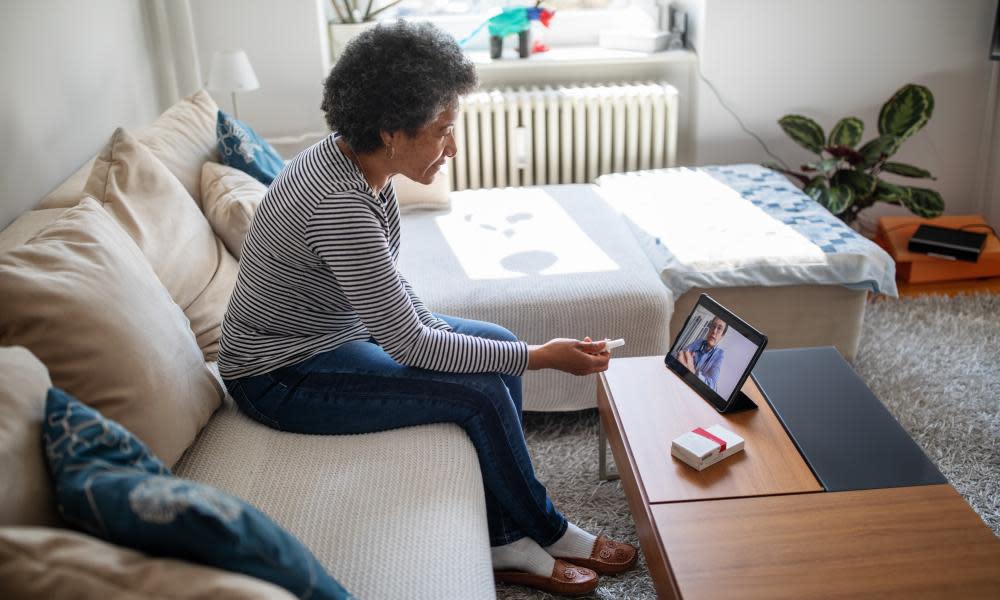Mental health patients ‘missed out on care’ during Covid

Mental health patients found their conditions deteriorated during the pandemic because the NHS switched from in-person help to support by telephone, video and text messages, new research reveals.
Many reported a lower quality of care, according to a study by University College London; others had trouble accessing medication, had appointments cancelled or felt the loss of face-to-face help meant they “were missing out on care”.
Researchers led by Dr Brynmor Lloyd-Evans found that, for many patients, the switch to remote care heightened the isolation and loneliness they were already feeling because they could no longer see friends and family.
“People with pre-existing mental health conditions experienced serious disruptions to their access to, and the quality of, mental healthcare as a result of the pandemic. The opportunities and challenges of remote mental healthcare were an important aspect of our findings,” Lloyd-Evans and colleagues write in the journal Social Psychiatry and Psychiatric Epidemiology.
“While for some people telephone and digital support provided continuity of care, for others there were issues around access to technology, maintaining therapeutic relationships remotely, and digital interfaces exacerbating difficult feelings or symptoms associated with their mental health.”
After interviewing 49 people with mental health conditions in London about their experience during Covid’s first wave, the researchers found key issues included “inadequate access to mental health services”, “difficulties in day-to-day functioning” and “struggles with social connectedness”.
One patient said: “Lockdown has made me feel very angry. I feel the professionals used it as an excuse to stop offering appointments. I was seeing her every week and it’s been cut to every three weeks [by telephone].”
Another said of their therapist: “She did text me a few times: we keep conversation [by] texting but it is not good enough really.” Another, who was offered video calls rather than in-person help, said: “For my paranoia, they [video calls] make it worse, so I tend not to do them.”
The 49 people had a range of conditions, including mood disorders such as anxiety, depression and PTSD as well as schizophrenia, psychosis and bi-polar disorder.
“For individual and group therapies, the quality of relational support provided through remote care felt less personal and connecting than face-to-face contact,” said Lloyd-Evans, who is an associate professor in UCL’s psychiatry division and the deputy director of the National Institute for Health Research’s mental health policy unit.
Some patients described their frustration at losing touch with fellow patients they had become friends with through attending group therapy sessions – another impact of the loss of NHS care.
Andy Bell, deputy chief executive of the thinktank Centre For Mental Health, said: “These findings show that many people living with a mental illness have experienced disruption and gaps in support during the pandemic. While mental health services have worked hard to maintain support in difficult times, for some the right help has been hard to find. We know form our own research that lots of people have felt isolated and missed out on essential services in the last year.”Lloyd-Evans stressed that he and his team identified some positives. “A few participants had found alternative sources of mental health support from voluntary sector services or informal support groups, which were highly valued and mitigated disruptions to available healthcare.” Some also received important support from their GP.
NHS England stressed that the same number of talking therapy appointments continued after the first lockdown began on 23 March last year, and rose to 490,000 a month by November, mainly through the use of remote technology to maintain therapeutic support for vulnerable patients. New mental health helplines, which were available 24/7, were also set up quickly across England so that both adults and children could seek urgent help with problems without having to go to A&E.
An NHS spokesperson said: “The pandemic has taken its toll on people’s mental health, but the NHS has continued to provide mental health services – increased appointments were offered, including face to face, and 24/7 helplines are available to anyone who needs urgent support.”

 Yahoo News
Yahoo News 
